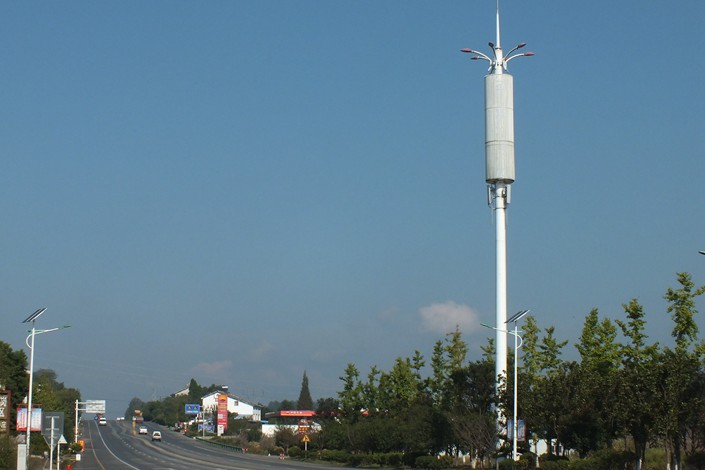5G Hype Fails to Buoy China’s Cellular Tower Operator

(Hong Kong) — Investors were unimpressed with cellular tower operator China Tower Corp. Ltd.’s first full-year earnings, even as the company looks to help develop the country’s 5G network.
China Tower’s operating income rose last year to 71.82 billion yuan ($10.72 billion), up 4.6% year-on-year, it said this week in its first full-year earnings report since listing in Hong Kong last year. Net profit rose 36.4% to 2.65 billion yuan.
The stock market appeared to register some disappointment with the results, with the company’s shares falling 2.1% in Monday trading on the Hong Kong Stock Exchange and closing down a further 1.62% Tuesday.
China Tower was established in July 2014 as a joint project between China’s three major state-owned telecoms operators, China Mobile, China Unicom and China Telecom, which became the new company’s largest shareholders.
The company, which is the world’s largest operator of mobile telecommunications towers, had a much-hyped initial public offering in August last year that failed to live up to expectations despite raising at least HK$54.3 billion ($6.91 billion). This appears to be because China’s mobile telecommunications are largely developed, with their being little need for new base stations.
With little need for such investments, the company’s capital expenditure shrank by 39.6% year-on-year to 26.466 billion yuan, China Tower Chief Accountant Gao Chunlei explained at a press conference yesterday.
Capital expenditure should see a modest rise in 2019 to around 30 billion yuan, with most of the money going towards supporting 5G pilot tests, the company’s chairman and general manager Tong Jilu said. While there is much excitement about China’s development of the technology, it is still difficult to grasp at the beginning of the year how much money the company will need to invest in order to support the needs of the three major operators, he added.
The big three operators are expected to be heavy investors in 5G coverage and have already experimented with 5G networks in 23 cities across 19 of the country’s provincial-level regions. Yet Tong did not disclose how many orders the company had so far for developing full 5G sites.
Contact reporter David Kirton (davidkirton@caixin.com)

- 1Cover Story: China Carves Out a Narrow Path for Offshore Asset Tokenization
- 2Drownings Shake Chinese Enthusiasm for Travel to Russia
- 3Over Half of China’s Provinces Cut Revenue Targets
- 4Li Ka-Shing’s Port Empire Hit by Forced Takeover Amid Panama Legal Dispute
- 5China Business Uncovered Podcast: A $15 Billion Bitcoin Seizure and the Fall of a Cybercrime Kingpin
- 1Power To The People: Pintec Serves A Booming Consumer Class
- 2Largest hotel group in Europe accepts UnionPay
- 3UnionPay mobile QuickPass debuts in Hong Kong
- 4UnionPay International launches premium catering privilege U Dining Collection
- 5UnionPay International’s U Plan has covered over 1600 stores overseas






